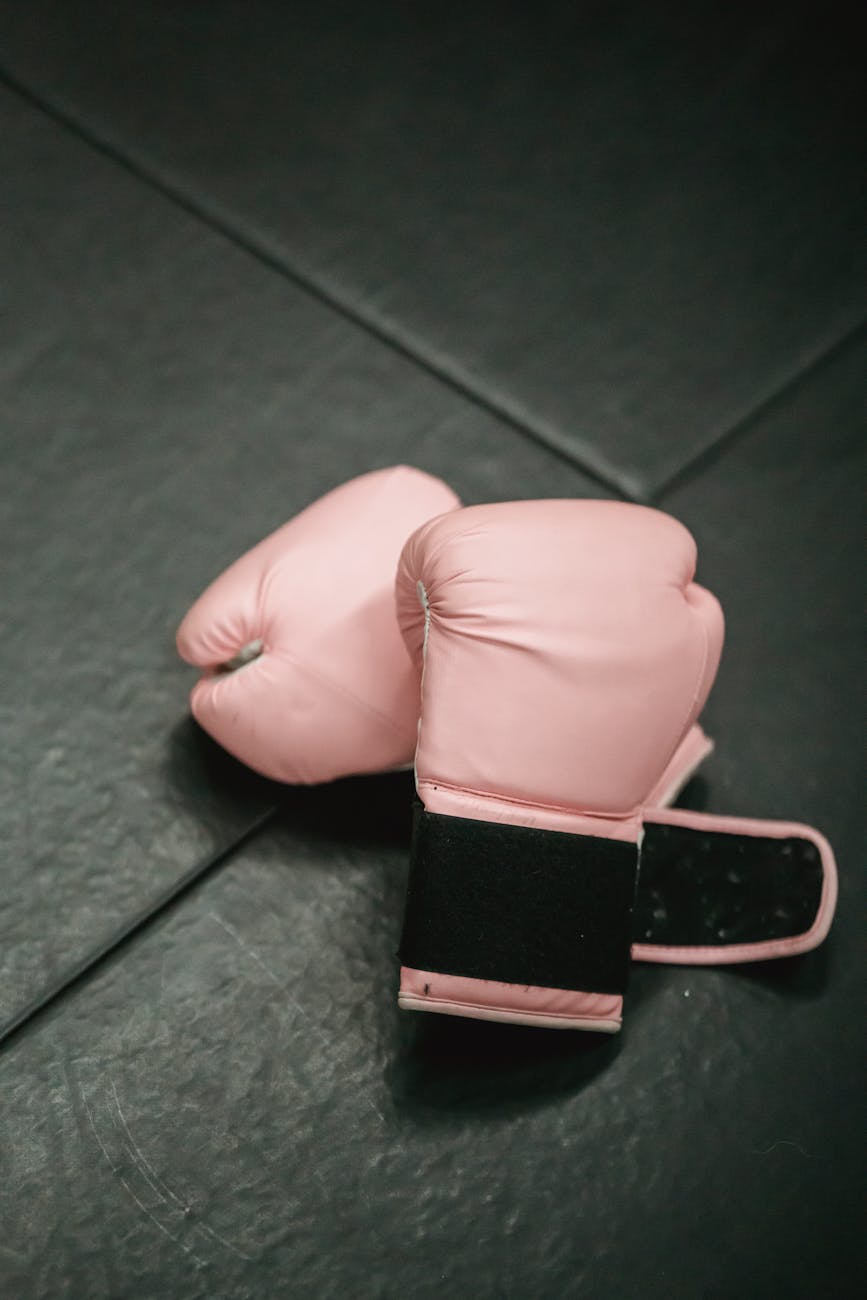Walking into a gym for the first time can feel overwhelming. The loud music, the clang of weights, the sight of incredibly fit people working out – it’s enough to make anyone feel anxious. This feeling is called gym anxiety, and it’s more common than you might think. Millions of people worldwide struggle with this invisible barrier that prevents them from taking care of their physical fitness.
Article Overview
This article covers the following key topics:
- Understanding Gym Anxiety – What it is and how to recognize it
- Root Causes – Why people develop these fears and worries
- Health Impact – How gym anxiety affects both physical and mental wellness
- Overcoming Barriers – Practical strategies to manage and reduce anxiety
- Alternative Solutions – Other ways to stay fit if gyms feel too intimidating
- Professional Help – When to seek support from healthcare providers
- Long-term Success – Building sustainable habits and confidence
What Is Gym Anxiety?
Gym anxiety is the fear or worry that people feel when thinking about going to the gym or while they’re actually there. It’s not just being nervous about trying something new. It’s a genuine mental health concern that can keep people from exercising altogether. Some people feel their heart race just thinking about stepping into a gym. Others might make it to the parking lot but never actually go inside.
This type of anxiety can affect anyone, regardless of age, fitness level, or background. You don’t have to be out of shape to experience gym anxiety. Even people who are relatively fit can feel intimidated by gym environments. The fear is real, and it can have serious consequences for both mental and physical health.
Common Signs of Gym Anxiety
Recognizing gym anxiety is the first step to overcoming it. The symptoms fall into three main categories:
Physical Symptoms:
- Sweating or shaking when thinking about the gym
- Feeling sick to your stomach before workouts
- Trouble sleeping before planned gym visits
- Dizziness when entering fitness centers
Mental Symptoms:
- Constantly worrying about what others think
- Imagining worst-case scenarios
- Having intrusive thoughts about being judged
- Creating elaborate excuses to avoid exercising
Behavioral Signs:
- Avoiding certain areas of the gym
- Only going during off-peak hours
- Leaving quickly without completing workouts
- Sticking to familiar machines and avoiding new equipment
- Signing up for memberships but never using them
Why Do People Develop Gym Anxiety?
Understanding the root causes of gym anxiety can help people address it more effectively. The main factors include:
Fear of Judgment:
- Worrying that others are watching and critiquing your form
- Feeling self-conscious about fitness level or body image
- Concern about making mistakes with equipment
Social Comparison:
- Comparing yourself to more experienced gym-goers
- Mirror-filled environments that encourage comparison
- Unrealistic expectations from social media
Past Negative Experiences:
- Childhood teasing about weight or athletic ability
- Embarrassing moments at gyms or during sports
- Trauma related to body image or physical activity
Cultural and Social Pressures:
- Pressure to look a certain way
- Unrealistic fitness goals from media
- Cultural attitudes about exercise and body image
The Impact on Physical Health
Gym anxiety doesn’t just affect mental health – it has real consequences for physical wellness too. When people avoid exercise because of anxiety, they miss out on countless health benefits. Regular physical activity helps prevent heart disease, diabetes, and many types of cancer. It strengthens bones, improves balance, and boosts the immune system.
Exercise is also crucial for maintaining a healthy weight. When gym anxiety prevents people from working out, they’re more likely to struggle with weight management. This can create a vicious cycle where weight concerns increase anxiety, which further prevents exercise.
Sleep quality suffers when people don’t exercise regularly. Physical activity helps regulate sleep patterns and reduces the time it takes to fall asleep. Without regular exercise, people might experience insomnia or poor sleep quality, which affects every aspect of their health.
Mental health benefits of exercise are equally important. Regular physical activity releases endorphins, which are natural mood boosters. It reduces stress hormones like cortisol and helps manage symptoms of depression and anxiety. When gym anxiety prevents exercise, people miss out on these natural mental health benefits.
The Mental Health Connection
The relationship between gym anxiety and overall mental health is complex. Often, gym anxiety is connected to other mental health concerns like general anxiety disorder, social anxiety, or body dysmorphia. People with these conditions might find gym environments particularly challenging because they amplify existing fears and worries.
Low self-esteem frequently accompanies gym anxiety. People who don’t feel good about themselves might assume others view them negatively too. This can make the gym feel like a hostile environment, even when other gym-goers are actually supportive or simply focused on their own workouts.
Perfectionism can fuel gym anxiety as well. Some people feel they need to have the perfect workout routine, the right clothes, or ideal form before they can show up at the gym. This all-or-nothing thinking keeps them stuck in the planning phase and prevents them from taking action.
Breaking Down the Barriers
Overcoming gym anxiety is possible, but it takes time and patience. The first step is recognizing that these feelings are normal and valid. Many successful gym-goers once felt the same way. The key is taking small, manageable steps rather than trying to conquer all fears at once.
Starting with research can help build confidence. Learning about different types of equipment, basic exercises, and gym etiquette can make the environment feel less foreign. Many gyms offer orientation sessions or personal training consultations that can help newcomers feel more prepared.
Choosing the right gym matters too. Some facilities are more beginner-friendly than others. Smaller, local gyms might feel less intimidating than large commercial chains. Many communities have specialized gyms for different populations, like women-only spaces or gyms focused on specific age groups.
Timing can make a difference as well. Visiting during off-peak hours when the gym is less crowded can help reduce anxiety. Early mornings or mid-afternoons are often quieter times when people feel more comfortable exploring and learning.
Practical Strategies for Managing Gym Anxiety
Having a plan before entering the gym can significantly reduce anxiety. Here are proven strategies that work:
Preparation Strategies:
- Research equipment and exercises beforehand
- Plan specific workout routines
- Visit during off-peak hours when it’s less crowded
- Take advantage of gym orientation sessions
- Consider hiring a personal trainer for initial guidance
Mental Techniques:
- Practice deep breathing exercises
- Use mindfulness to stay present
- Focus on personal progress, not comparison
- Celebrate small victories and improvements
- Challenge negative thoughts with positive self-talk
Social Support:
- Bring a supportive friend or family member
- Join beginner-friendly group fitness classes
- Connect with online communities for encouragement
- Work with trainers who understand anxiety
Gradual Exposure:
- Start with short visits to get comfortable
- Begin with familiar equipment before trying new things
- Set small, achievable goals
- Gradually increase workout intensity and duration
Alternative Approaches to Fitness
It’s important to remember that gyms aren’t the only way to stay physically active. For people with severe gym anxiety, starting with home workouts might be a better option. There are countless online fitness videos, apps, and programs that can provide effective workouts without the social pressure of a gym environment.
Outdoor activities like walking, hiking, or cycling can provide excellent exercise while connecting with nature. Many people find outdoor workouts less intimidating and more enjoyable than indoor gym sessions. Community sports leagues or recreational groups can provide social connection along with physical activity.
The goal isn’t necessarily to overcome gym anxiety completely. The goal is to find sustainable ways to stay active and healthy. For some people, that might eventually include the gym. For others, it might mean discovering alternative forms of exercise that they truly enjoy.
When to Seek Professional Help
While mild gym anxiety is common and often manageable with self-help strategies, severe anxiety that prevents all forms of exercise might require professional support. Mental health professionals can help identify underlying causes and develop personalized strategies for overcoming anxiety.
Therapy approaches like cognitive behavioral therapy (CBT) can be particularly effective for gym anxiety. CBT helps people identify and change negative thought patterns that contribute to anxiety. Exposure therapy, where people gradually face their fears in a controlled way, can also be helpful.
Sometimes gym anxiety is a symptom of broader mental health concerns that need attention. If anxiety is affecting multiple areas of life, not just exercise, it’s worth speaking with a healthcare provider or mental health professional.
Building Long-Term Success
Overcoming gym anxiety is rarely a quick process. It takes time to build new habits and change long-held beliefs about exercise and body image. The key is being patient with yourself and celebrating progress, no matter how small.
Setting realistic expectations is crucial. Not every workout will be perfect, and there will be days when anxiety feels stronger than others. This is normal and doesn’t mean you’re failing. The goal is gradual improvement, not perfection.
Building a support system can make a significant difference. This might include friends, family members, fitness professionals, or online communities. Having people who understand your struggles and celebrate your successes makes the journey less lonely.
Remember that taking care of your mental health is just as important as physical fitness. If gym anxiety is preventing you from exercising, addressing the mental health aspect is not optional – it’s essential for overall wellness.
Moving Forward
Gym anxiety is a real barrier that affects millions of people, but it doesn’t have to be permanent. With patience, understanding, and the right strategies, it’s possible to develop a healthier relationship with exercise and fitness environments. The key is starting where you are, not where you think you should be.
Whether that means taking baby steps into a gym, exploring alternative forms of exercise, or seeking professional help, the important thing is taking action. Your physical and mental health are worth the effort, and you deserve to feel comfortable and confident in your journey toward better wellness.
Disclaimer: This article is for informational purposes only and should not be considered medical or mental health advice. If you are experiencing severe anxiety that significantly impacts your daily life or ability to exercise, please consult with a qualified healthcare provider or mental health professional. They can provide personalized guidance and treatment options appropriate for your specific situation. Always speak with your doctor before beginning any new exercise program, especially if you have underlying health conditions or concerns.



